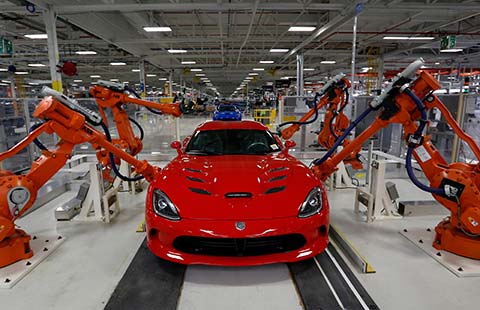We need China to succeed: EU chamber of commerce head
(Xinhua) Updated: 2016-03-12 10:20China is on track to tackle tough issues. In November 2013, China announced a decision on "major issues concerning comprehensively deepening reforms," setting 60 detailed tasks in its reform roadmap covering 15 areas, half of which were about economic restructuring.
The Chinese government said it would explore a management model for foreign investors with pre-entry national treatment plus the negative list. Another opening up measure the same year was China operating a pilot free trade zone in its financial hub Shanghai.
China's moves were welcome by European companies. "European companies are very interested in China," Wuttke said. "They have sizable Chinese branches but still need signals to put more money in China."
"The hope is that China's reform exercise is successful," he added.
Zooming out to the larger picture, Beijing and Brussels have witnessed sound economic ties in recent years.
In January, the two sides moved to conduct substantial negotiations on bilateral investment after agreeing to achieve common ground on the scope of the investment pact at the end of 2015.
The talks were of great significance for European companies, Wuttke noted, adding the pace was surprising. "The negotiations between China and Europe on the investment agreement doing extremely well," Wuttke said. "So there is a possibility of concluding it at the end of this year, beginning of next year."
If so, it could be really "good news" in 2016, Wuttke added.
The investment agreement would give "better access to us into the European market and Chinese market as well as Chinese companies to better secure European market," he noted.
Despite the recent slowdown, China remained a global economic powerhouse. In 2015, China contributed around 30 percent of global growth. For many European companies, China accounts for around 10 percent of their global business.
"For us, China has to succeed, there is no second China," Wuttke said.
- Polish parliament ratifies agreement to join AIIB
- Internationalization of Chinese yuan to boost Africa's economy: economist
- Firms set sights on 5G networks
- Many see big picture for virtual reality
- Sky is the limit for drone manufacturers
- Wheels turn fast for driverless cars
- Slower economy 'won't deter anti-pollution efforts'
- Beijing Kunlun creates AI startup in United States
















